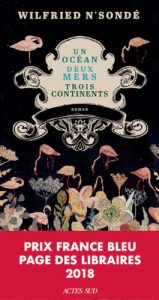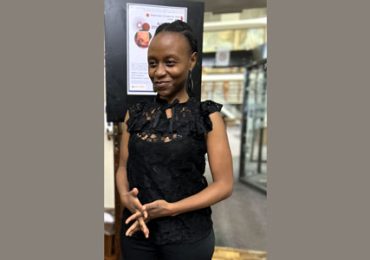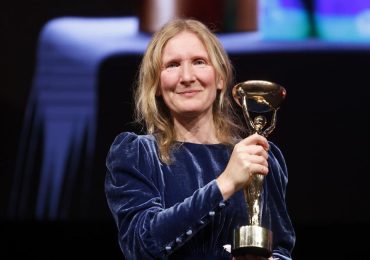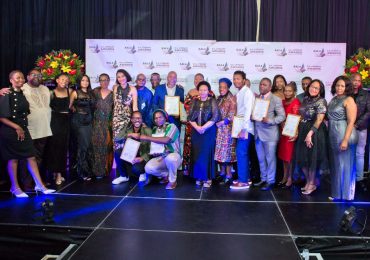Un océan, deux mers, trois continents is the realisation of an idea I had forming in my mind for about seven years. I wanted to write an adventure novel set in a strained and specific historical context.
—Wilfried N’Sondé
The JRB is pleased to share an excerpt from Wilfried N’Sondé’s Un océan, deux mers, trois continents (One ocean, two seas, three continents), the winner of the Prix Ahmadou-Kourouma.

Un océan, deux mers, trois continents
Wilfried N’Sondé
Actes Sud, 2018
The prize, awarded annually at the Geneva Book and Press Fair and bearing the name of the pioneering Ivorian writer Ahmadou Kourouma, rewards a work of fiction or an essay devoted to what is referred to as « l’Afrique noir ».
Un océan, deux mers, trois continents concerns the sixteenth-century historical figure Nsaku Ne Vunda, an orphan who was baptised and given the name Dom Antonio Manuel. As a young priest, he was compelled by the West African King of Kongo, Alvaro II, to undertake an uncertain journey, fraught with danger. Vunda’s mission: to implore the Pope in Rome to put an end to the slave trade. Somewhat ironic, considering the King himself profits from the brutal trade. Vunda’s odyssey starts with him erroneously boarding Le Vent Paraclet, which is setting sail to Brazil, not Europe—and so the twists and turns begin.
N’Sondé brings together imagination and thorough research (some garnered from his brother, a historian) to weave a story of adventure and hope about the first African ambassador to the Vatican. Un océan, deux mers, trois continents brings to the fore a little known character from Africa’s early colonial past, a time which N’Sondé describes as ‘a terrible and fascinating era packed with pirate ships, the Inquisition and mass servitude’.
The Prix Ahmadou-Kourouma jury praised N’Sondé’s writing, calling the historical novel ‘a breathtaking appeal for tolerance, equality and hope’.
N’Sondé was born in Congo-Brazzaville and grew up in the suburbs of Paris. He was a well-known punk musician in the Berlin underground music scene before becoming a writer. Drawing on his experiences, his award-winning first novel Le Cœur des enfants léopards (The Heart of the Leopard Children) examined the cultural alienation and violence of the banlieues as well as the psychic toll of being uprooted and its effects on youth culture.
Read an excerpt (in French) from Un océan, deux mers, trois continents:
Oceans-continents-extrait- Not loading? Click here to view the PDF





